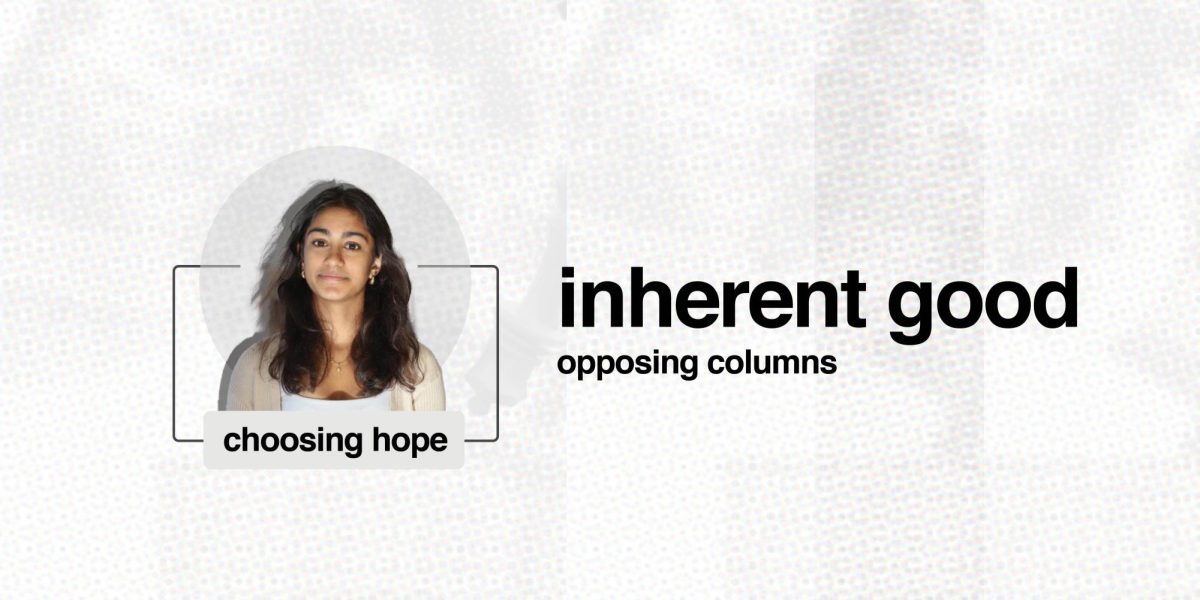Wars have been fought, people have suffered, land pillaged, looted and burned, yet in all of this, I remain a profound believer in the inherent goodness of humanity, but not for the reasons often cited. If someone were to ask me whether I think the human race has committed atrocities against each other and the land itself, I would give a resounding yes–that, in my mind, is not up for debate. However, I believe that these actions are not brought about as a result of the inherent ignobility of mankind, rather they are the product of nature.
All things considered, it is erroneous to say that nature as an entity is a force of good or conversely a force of evil. Rather, nature just is. It’s appreciated for the harsh thunderstorms and the torrents of rain, but it is also beloved for the wealth of life it gives rise to. Much like nature, humans come into existence with no preordained purpose, and with that no predisposition for “good” or for “evil”; as a species our fundamental purpose is to survive, reproduce, and ensure that our lineage will be continued. Pondering whether humanity is inherently good is a futile question that exemplifies the dogmatic philosophy of human exceptionalism.
This idea of human exceptionalism, that humanity is better, more valuable than all the other species on the planet, is an inherently deleterious statement. Undeniably, we are extraordinarily advanced organisms capable of a vast range of emotions and thought, but what gives us the right to classify any species–including our own–as “good” or “evil?” Both of these concepts were man-made; the ideas of morality and immorality have been subject to change all based on the whims of societal norms. Asking whether humans are inherently good or inherently evil, to me, is akin to asking are lions inherently good or evil? Are frogs, fish, and tigers inherently evil? Just as we do not judge the moral character of a river for flooding a valley or a wolf for hunting a deer, it is pointless to search for some innate moral quality in humanity. Our choices, our conflicts, and our creations are products of circumstance, biology, and environment; not the evidence of a fundamental virtue or vice.
Seeking an answer to the age old question of human morality is fruitless; ultimately, it’s a matter of perception. In reality, humans are nothing: not good, not bad; however, despite this conviction, I am drawn to the idea of the inherent goodness in mankind. It is a paradox that comes down to choice. I choose to believe in the goodness of mankind; it gives me hope, it fuels my aspirations, and most importantly, it doesn’t take anything from me–it enriches my life, gives just a little bit more meaning to my relationships, to my actions, and to my choices. And so, even in a world indifferent to our existence, I choose to see the good in people, it shapes how I interact with the world and shapes how I respond to the challenges I face in my own personal life.


